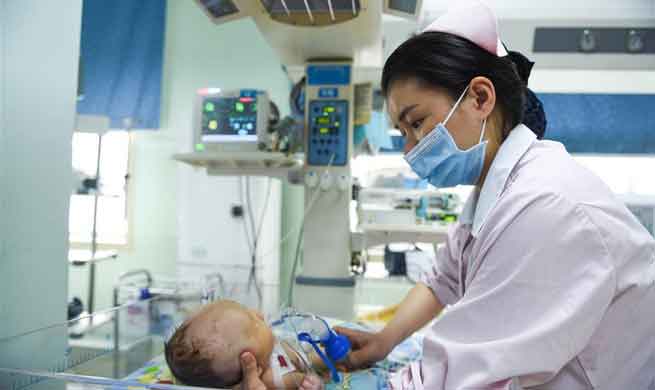CHICAGO, Feb. 19 (Xinhua) -- A study of middle-aged women by the University of Illinois (UI) found that sleep problems vary across the stages of menopause, yet are consistently correlated with hot flashes and depression.
UI researchers used data from the Midlife Women's Health Study, which followed 776 women aged 45-54 in the greater Baltimore area for up to seven years. The women provided annual surveys and blood samples so that the researchers could track sleep disruptions, other menopausal symptoms and hormone levels as women transitioned from pre- to post-menopause.
To track poor sleep, the surveys asked questions about the frequency of insomnia, restless sleep and sleep disturbances.
The study found no correlation between the likelihood of reporting poor sleep before menopause, during menopause and after menopause. This means that for many women in the study, their reported sleep problems changed as they transitioned to different stages of menopause. In other words, women who had insomnia during menopause were not more likely to have insomnia after menopause.
In analyzing the surveys for any other symptoms or factors that might be associated with poor sleep, the researchers found that hot flashes and depression were strongly correlated with poor sleep across all stages of menopause.
Those two risk factors vary in reported frequency across menopausal stages, which might help explain why poor sleep also varies across the stages, the researchers said.
The findings suggest that addressing those risk factors may also address sleep disruptions, as well as give women hope that their sleep symptoms may not last past the menopausal transition, said Rebecca Smith, a UI professor of pathobiology. Smith conducted the study with Jodi Flaws and Megan Mahoney, professors of comparative biosciences at Illinois.
The study has been published in the journal Sleep Medicine.

















